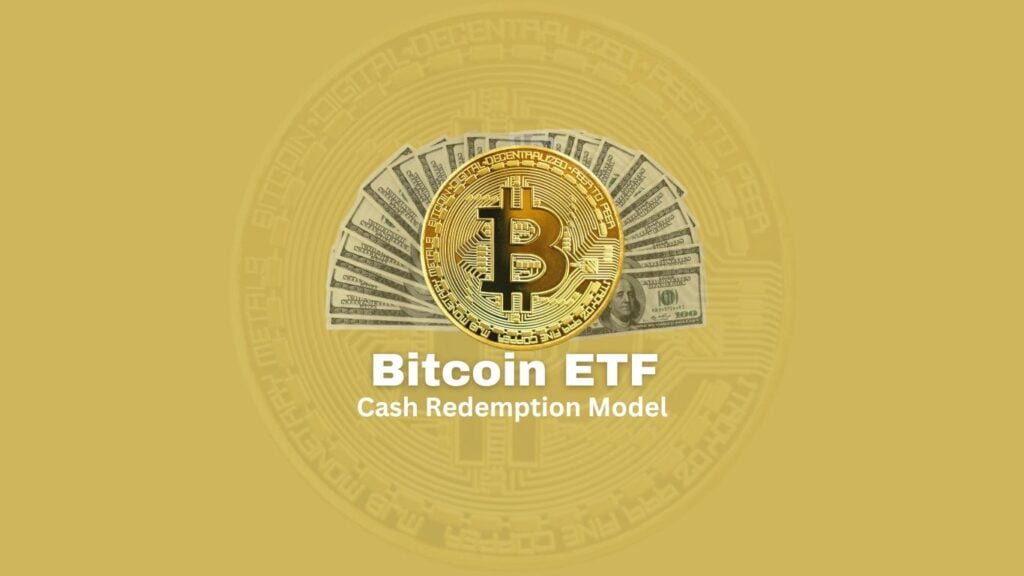The United States Securities and Exchange Commission (SEC) has rolled out a new regulatory standard called ‘Cash Redemption’ for all Bitcoin Spot Exchange-Traded Fund (ETF) applicants awaiting approval.
This fresh guideline, known as the “Cash Redemption Model,” has been introduced by the SEC for all Bitcoin Spot ETF applicants seeking approval. It seems the SEC is unwavering in its stance, preferring this model over alternatives proposed by other issuers.
Under this model, authorized participants are permitted to deposit funds equivalent to the net asset value of the creation units to be formed within the ETF. The ETF then utilizes these funds to purchase the underlying assets, specifically Bitcoin.
James Seyffart, a prominent Bloomberg Analyst, highlighted this development in this post on X, referencing the SEC’s requirement. He shared insights indicating that this new standard was a mandatory condition for Bitcoin Spot ETF applicants.
Supporting this update, financial lawyer Scott Johnsson shared more details about the SEC’s new model. According to Johnsson, Invesco is among the latest entities to bend the knee for cash creation and redemption standards for its ETF. Initially starting with cash transactions, the trust might consider in-kind transactions in the future, as suggested by various ETF applications.
The in-kind model involves participants depositing a collection of securities in line with the ETF’s portfolio, allowing investors to receive creation units without instantly selling securities for cash.
Moreover, Eric Balchunas, a Senior ETF analyst at Bloomberg, confirmed Invesco’s adoption of the cash redemption model, indicating the firm’s compliance with the updated regulatory filings (S-1).
Blackrock, in its Spot Bitcoin ETF application, introduced the “Prepay” in-kind redemption model. This alteration aims to ease the limitations faced by financial institutions in holding cryptocurrencies. Under this model, authorized participants could issue new fund shares using cash rather than solely Bitcoin. These funds could then be converted into Bitcoin and stored by the ETF’s custody providers, facilitating access for banks unable to directly store cryptocurrencies.
Blackrock believes this approach will offer enhanced protection against market manipulation, a key factor in the SEC’s historical rejections of ETF proposals.
Related News: Bitcoin ETF Updates: BlackRock and Bitwise Resubmit Revised S-1 Filing

